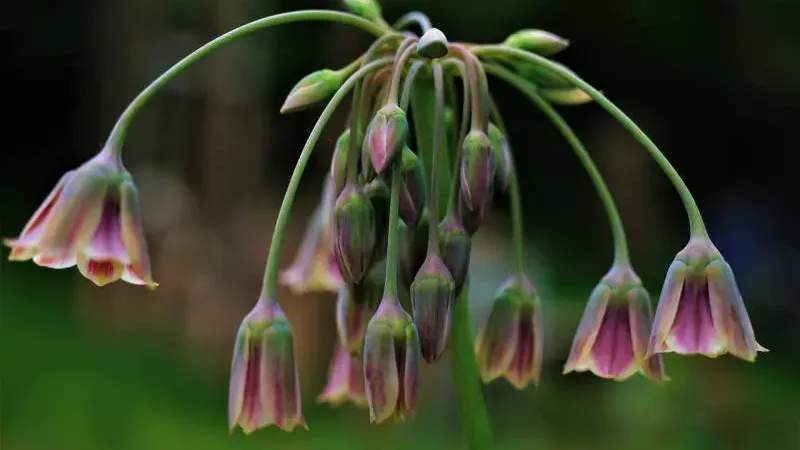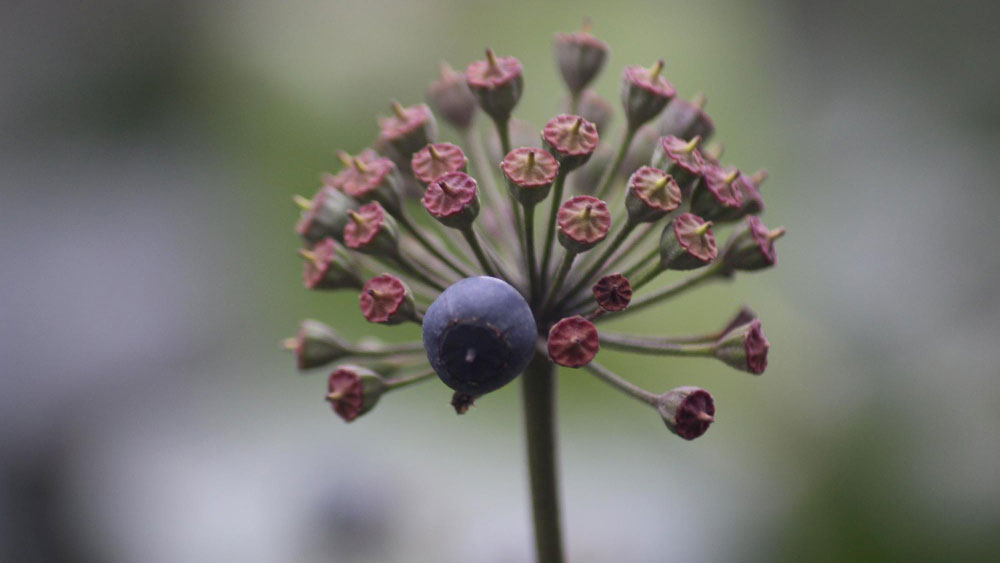Why Have My Alliums Died? – 5 Causes

With a showy bloom, alliums are a popular addition to many gardens. The allium is a member of the onion family.
While they may not produce the familiar edible bulbs we all love to cook with, it’ll be evident that they are in the onion family when you cut the stems or work with the plants.
The smell can be pretty intense, yet not wholly unpleasant. The flowers of the allium look very much like puffy globes when in bloom.
The head of the flower is a cluster of tiny individual flowers.
The general shape of the flower head may be perfectly round, oval, or even have an attractive cascading look.
Alliums come in many charming colors. Such as blue, purple, yellow, pink, and white. They can be fun to plant, all in the same color.
Many gardeners mix and match for a fun pop of color in their flowerbeds.
The allium is a late spring and an early summer bloomer. It tends to be an incredibly hardy plant. You may be faced with alliums that haven’t made it.
Before you remove them from your garden, there may be an easy explanation for their untimely death.
We’ve gathered the 5 most likely culprits.
Determining Why Your Alliums Died
1. Are The Soil Conditions Right For Growing Alliums?
Alliums are hardy plants; that much is true. However, like many bulbs, they can be picky about the type of soil they grow. The soil should be loose and well-draining.
Soil that is too tightly packed or doesn’t allow for adequate drainage will lead to unhappy plants. Poorly draining soil can result in soggy bulbs and roots. This, in turn, can lead to rot.
The good news is that you can adjust the soil conditions by loosening the soil and adding better-draining sand to tightly packed soil. You can also add rocks to the soil to help with the drainage.
It is pretty easy to amend the conditions of your soil. This is a quick and easy first step and is often the culprit.
2. Are You Overwatering Your Alliums?
Overwatering is the bane of the gardener. Alliums will grow well in warmer temperatures but may not need as much water as you give them.
Feel the soil at the base of your plants. It shouldn’t be soggy, but more, just slightly moist against your fingertips.
If your soil is also too tightly packed, this might be the reason your plants aren’t making it.
Watering less is a straightforward solution. You want to keep your plants hydrated when those hot days roll around.
Just be mindful of how much water your alliums and other bulb plants are getting.
3. Are They Not Getting Enough Sun?
Alliums grow well in sunny spots. They love the sunshine. They can also do well in areas that receive partial sun. If your alliums are in a mostly shady area, they aren’t likely to thrive.
They may grow stunted, or they may grow tall and leggy, only to die back quickly.
If your alliums are in planters, move them. Otherwise, consider planting them in an area with better sunshine next year.
A bit of planning for next year’s garden will allow you to determine better where your alliums will thrive.
This is an easy fix. It will also allow you to evaluate whether you should move other plants in your garden.
4. Are You Over-fertilizing Your Alliums?
Most plants need some fertilizer to thrive and bloom. It is possible to over-fertilize and use the wrong type of fertilizer.
Pick out a fertilizer that has been explicitly designed for alliums. If you cannot find one, you’ll do well by selecting a generic brand with a higher phosphorus content. Be sure that you closely follow the instructions included with the fertilizer.
Honestly, a less is more approach is better for keeping your alliums happy and healthy.
Fertilizer is easy to buy from your local garden center. It is also easy to reverse the effects of over-fertilizing with a bit of time.
5. Is It Simply That Time Of The Season?
The majority of alliums are perennials. This means that they will typically return blooming year after year.
That said, once your alliums are done flowering, they may begin to die back as the hottest months of the summer arrive. There’s not much to do at this point.
You can remove the dried blooms or leave them in place. Add mulch to the plants and let them do what nature will make them do.
This is truly a hands-off fix. There’s not much that needs to be done to ensure the continued health of the plants. They aren’t dead. They are simply going dormant for their off-growing season.

How to Prevent Your Alliums From Dying
For alliums, sometimes the best solutions are the most accessible solutions. They are incredibly low-maintenance plants that won’t need much from you. The following tips will help you care for your alliums so that they stay alive:
Watering
Alliums are prone to drought and will likely need water if planted in the ground. In seasons of prolonged dry spells, ensure you water your plant adequately. Also, pay attention to pots that dry out after continues
Keep the soil loose and well-draining, and keep the plants watered and fertilized.
Fertilizing
Applying fertilizer to your alliums will encourage growth and enable them to live on for years. If the soil where you’ve planted your alliums is poor in nutrients, you can supply your plant with potash feed.
You can also use pellets (they are rich in potash and ideal for alliums)
Staking
Your plants won’t need staking if they are planted deeply enough. They will be able to stretch over the sunlight easily. Staking is only necessary when they are not planted deeply enough.
Final Thoughts
One way to guarantee that your alliums don’t die is to know how to plant and care for them properly. Alliums are usually planted outdoors and in a good-quality deep pot.
If you plant your alliums under the right weather and environmental conditions, they will live on and on for years.